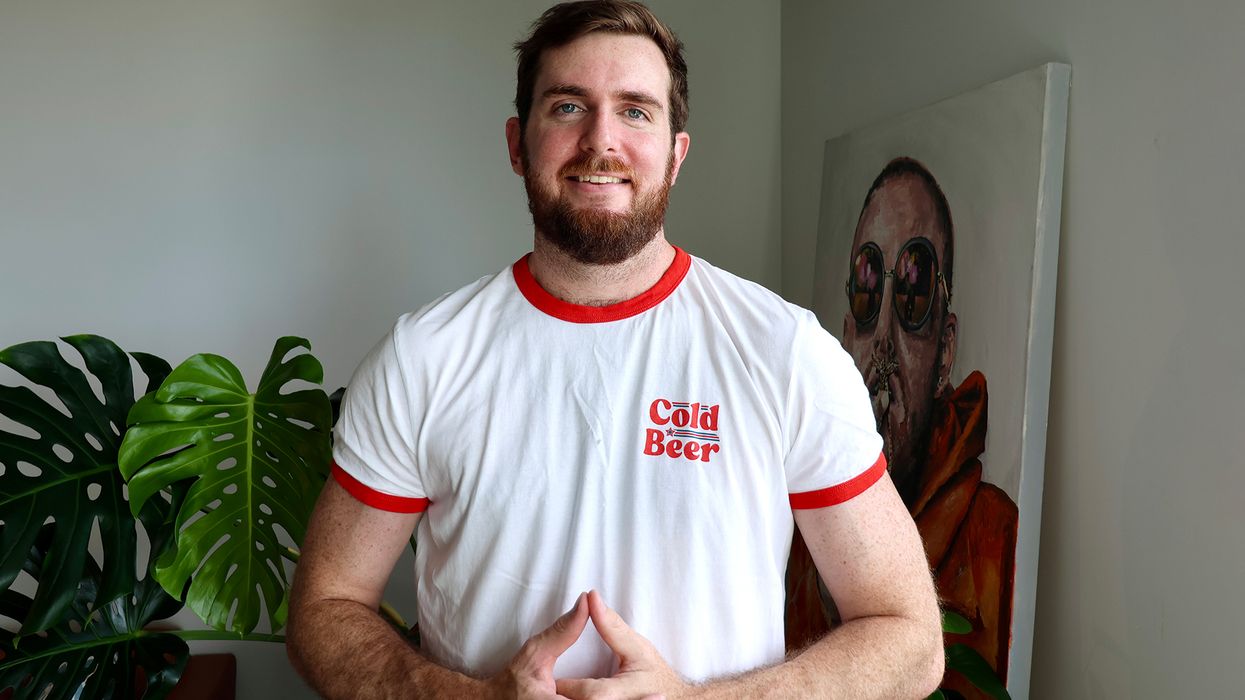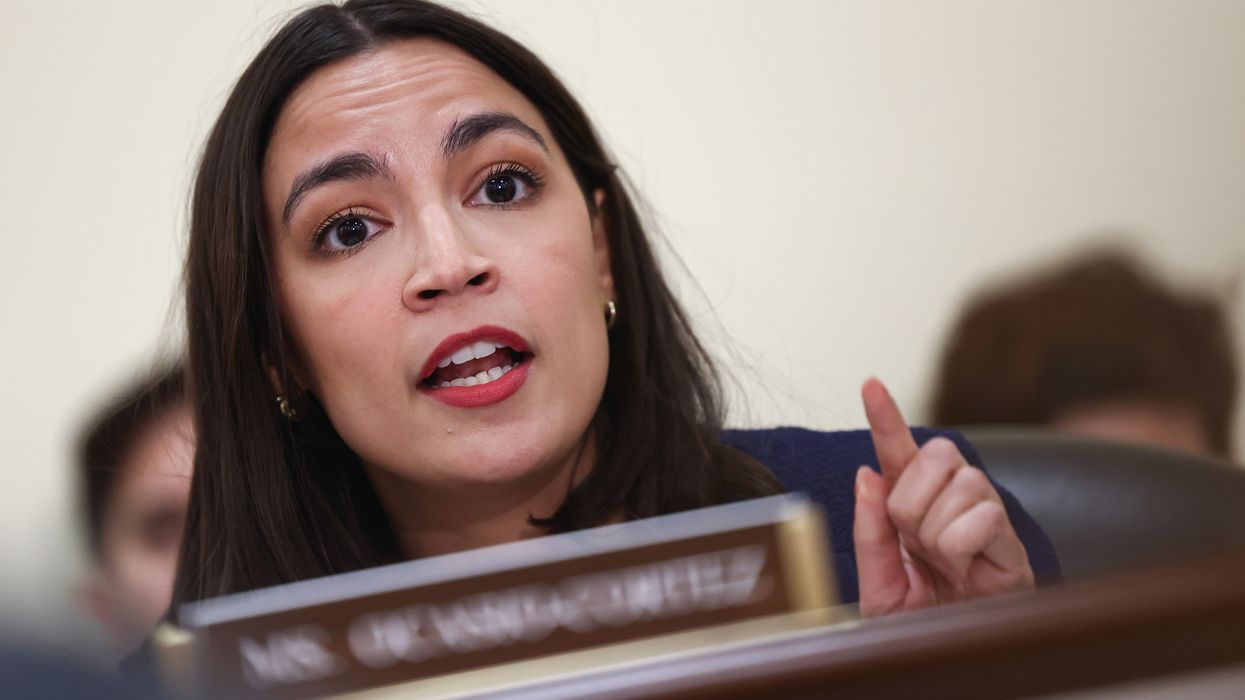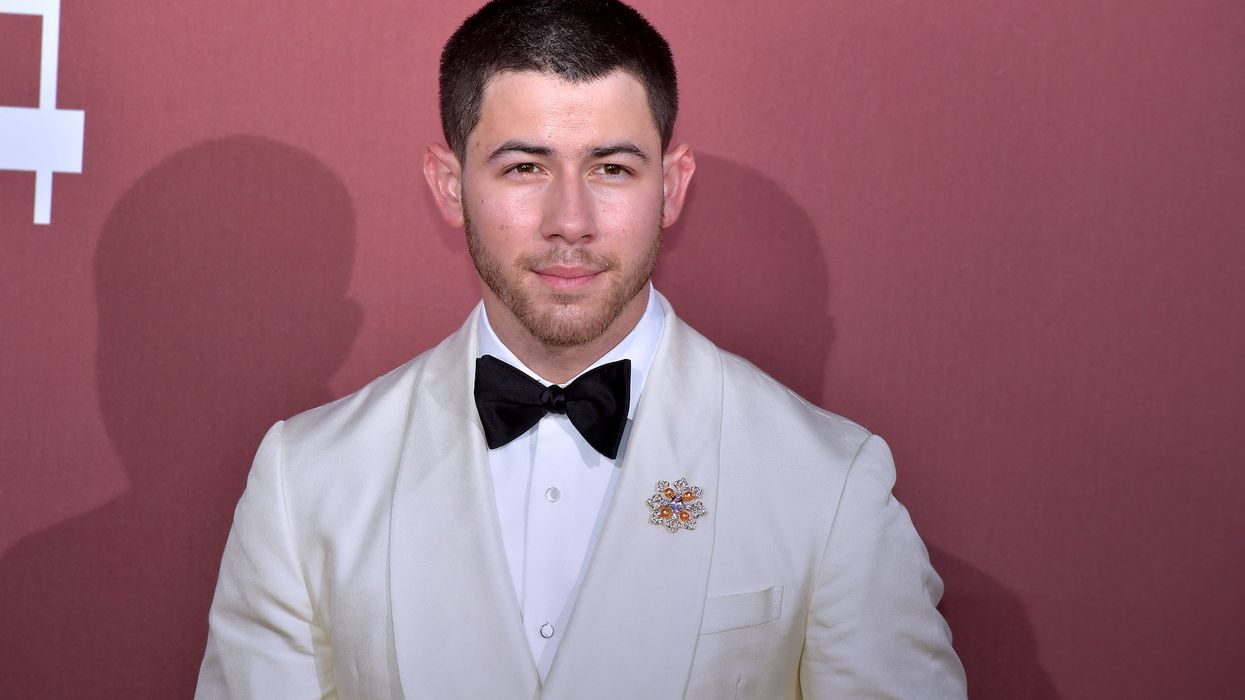Anyone watching last night’s Democratic National Convention surely noticed a new twist: a blue-suited DJ playing songs to accompany each roll call. And with songs ranging from “Born in the U.S.A.,” “Take Me Home, Country Roads” and “Sweet Home Alabama” to “Girl on Fire,” “Despacito,” and “Good Luck, Babe!”
DJ Cassidy, who manned the turntables, isn’t a newcomer to spinning at political events: He’s also DJ’d at Jay-Z and Beyoncé’s wedding and at White House birthday parties for Barack and Michelle Obama. His next all-star “Pass the Mic Live!” event will take place in Las Vegas. But as he explained to Rolling Stone — on only three hours’ sleep — he’d never quite been asked to do something like a roll-call set list before.
The event only ended a few hours ago, but how do you look back on it?
It was more exciting than I ever anticipated, and I anticipated it would be exciting. It definitely struck a chord we were not quite expecting. Sometimes you can plan something and produce something and work on something for weeks and know that it’s special and unique and, in this case, ground-breaking. But it’s still not possible to have a real sense of the impact something will have.
I never realized how important the roll call was. The average person may not realize it. Speeches don’t have to happen. But the roll call has to happen. It’s the foundation of the convention. It allows each state’s voice to be heard. So it was a surreal feeling to see the “Pass the Mic” experience connected to the roll call. It hit me differently than I thought it would. It felt like it brought a new life to the process that people take for granted. And the process is giving people a voice.
How did this all start?
I got a call a month ago from the DNC. Ricky Kirshner, the producer for the convention, is someone I’ve worked with before, including in 2012 on the convention and at Joe Biden’s inauguration four years ago. And it was very simple: They said, “We want you to be the first musical maestro.” I was told I’d be the first for a convention roll call, the first year the roll call was ever set to music.
Why this time?
I have an idea where that came from. That’s a question for the producer. But I think it’s a combination of things. It’s a combination of the campaign energizing the country in exciting ways and the country’s diversity.
What came next?
We started producing the segment over a month before. Many, many hours of meticulous curation went into selecting these songs: 50 states, but also Guam, Puerto Rico, and others. None of them were freestyle. Everything was meticulously plotted. I’ve never done something like this. I had more than 60 songs that I would normally never play together back to back, in that order. So I had to determine how this would work.
I insisted to everyone from the beginning that this wouldn’t be a one-man process. I didn’t want to curate a soundtrack in a vacuum based on my taste. I insisted that every song having an actual connection to the state. And that connection could be for a number of reasons. It could be that the artist who sings it was born in the state or lives in the state, or the song is about the state. Or the lyrics mention the state. Or the song was an anthem. Did they have a shared feeling? Did they feel celebratory and hopeful and inspiring? That was also my job.
I went into this knowing there are not going to be three “Empire State of Mind”s for each state. Nor should there have been. That would have been boring. Some should be like that and some should have more of an unexpected explanation. Taylor Swift is known for having a home in Rhode Island, so that’s why we chose that [“Shake It Off”].
In some cases, we consulted the states and their representatives who were going to be present. I was very insistent it was a collaborative process. There are many big stars from Florida but Tom Petty’s “I Won’t Back Down” was a special request [from the Florida delegation]. And thematically the song makes a lot of sense. The Romantics aren’t from South Dakota, but “What I Like About You” was a song that had meaning to them and is a theme of theirs. [As for clearing the songs, Cassidy’s rep notes that “the convention handled those logistics.”]
I think you taught a lot of people that Chappell Roan is from Missouri by picking that song.
Indeed! On a very concrete level, I learned where every artist was from. I would just Google artists old and new. And some were curveballs like that one. New artist and new song. We really wanted the list to represent the diversity of the country and all songs and eras. I believe the oldest song on the list was Sam Cooke’s “Twistin’ the Night Away.” And there were songs from the last 12 months that were really important.
How about “Jump Around” by House of Pain to represent Wisconsin?
That was a very interesting example, and I credit my girlfriend for that. House of Pain aren’t from Wisconsin. I don’t believe Everlast mentions Wisconsin in the lyrics. But the University of Wisconsin’s theme song is “Jump Around.” Once I heard that, I went online to do research and learned how the song became the university’s anthem and the state’s unofficial anthem. That was one of the highlights of the night.
Other big moments for you?
Playing the Chicago Bulls theme song [for Illinois] was my favorite. First of all, we were in Chicago. We’re at the United Center, where the Bulls played. It was the only song with no words, but that theme is so anthemic; it had a feeling of “We Will Rock You” or “Eye of the Tiger.” It was so electrifying and impactful.
There were three states with multiple songs. Georgia was one of the, so we started with “Welcome to Atlanta” and then went into Lil Jon’s “Turn Down for What.” He and I collaborated on that piece, so of course I called him. I told him, “I’m going to pass the mic for Georgia to you, the old-fashioned way.” When he came out, the arena exploded.
Interesting that you went with the Dropkick Murphys for Massachusetts, although I assume that’s because the song title was “I’m Shipping Up to Boston.”
Anything like that was a shoo-in for the list, but in talks with the state representatives, that song meant something to them. That could have gone many ways. It could have been New Edition, one of my favorite groups!
What did you leave with?
To a lot of people, the roll-call process typically lacks emotion. And it shouldn’t, because it’s the most important part of the whole week. The producers found a way to bring emotion to a typically emotionless process.
What did you hear afterward from any of the big names in the house?
I got feedback from Barack Obama. I hadn’t seen him in years, but we locked eyes and said a quick hello and he said, “You killed it tonight!” That was a perfect way to cap off the night for me.
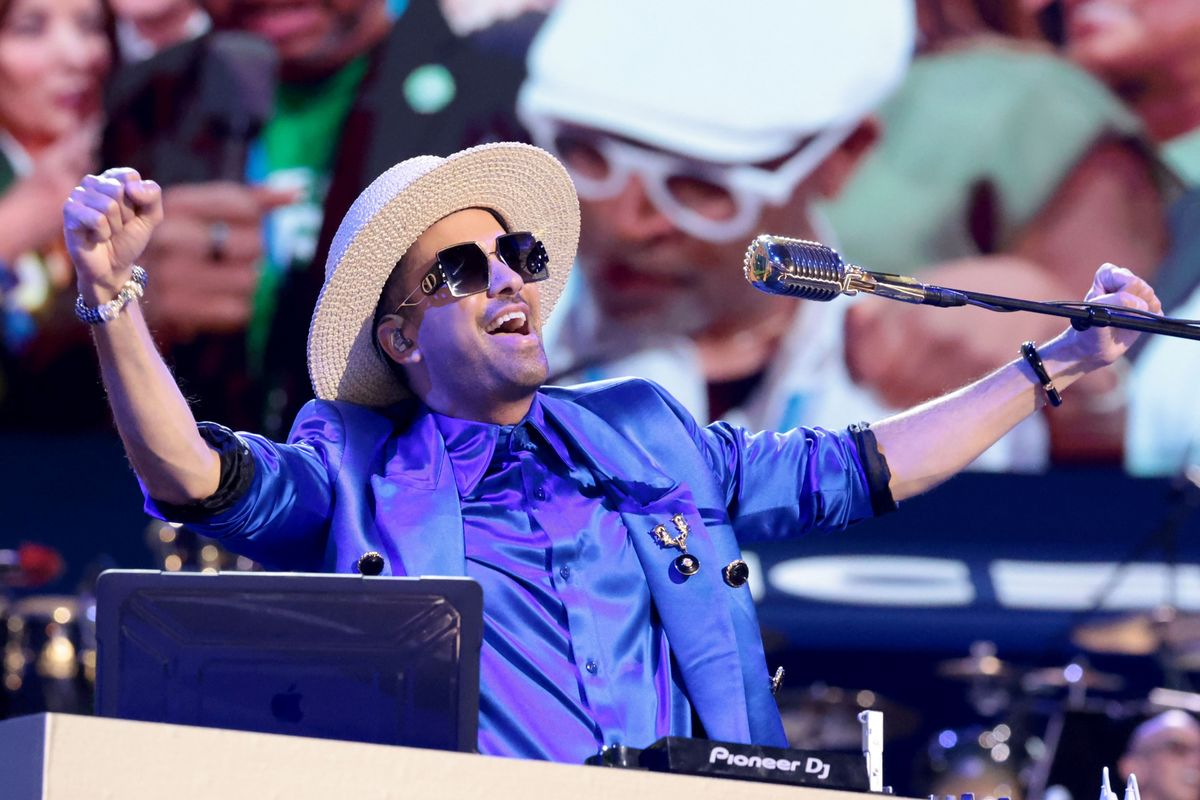





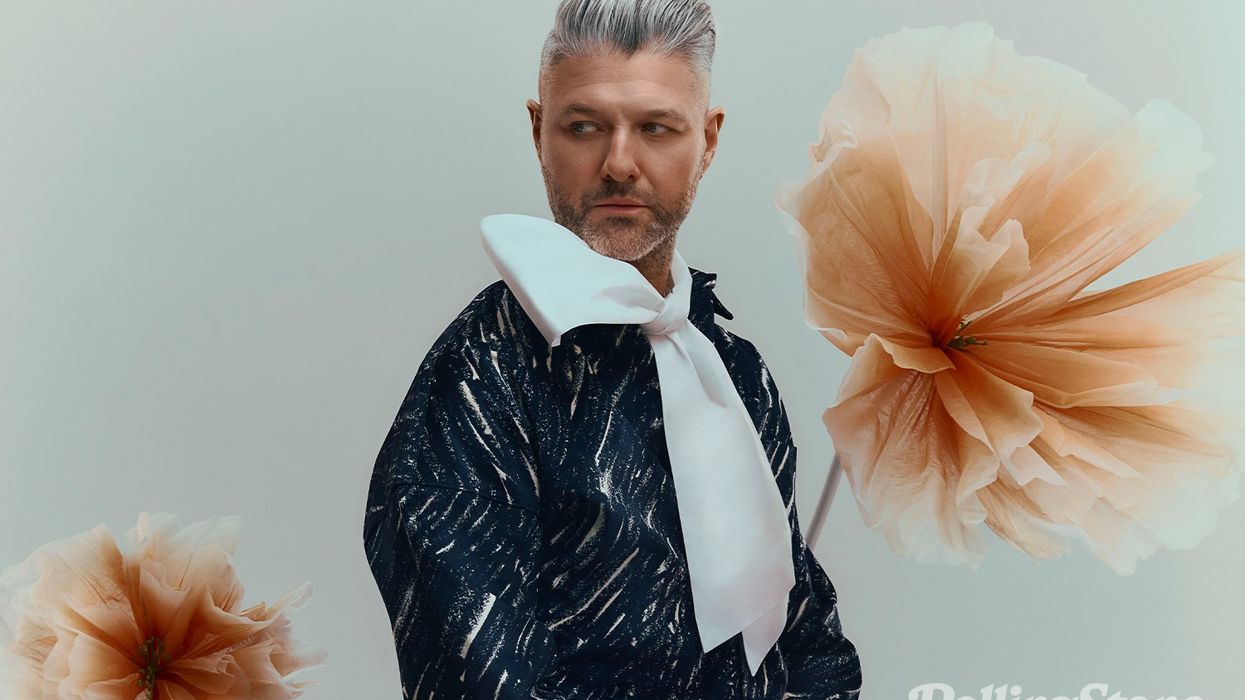
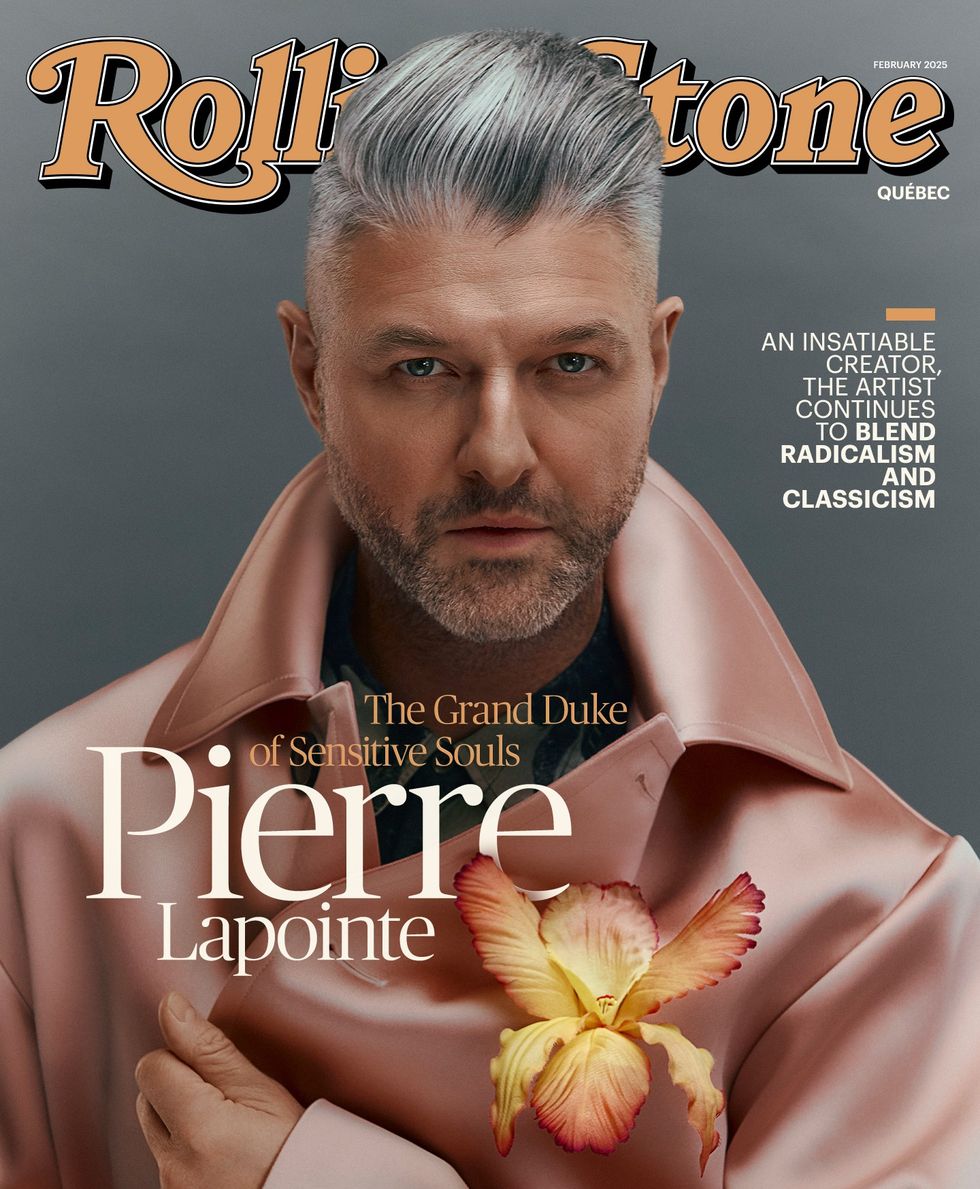 Coat (polyester and wool), shirt (silk), Dries Van Noten, SSENSE.com / Flower (silk), M&S Schmalberg
Coat (polyester and wool), shirt (silk), Dries Van Noten, SSENSE.com / Flower (silk), M&S Schmalberg
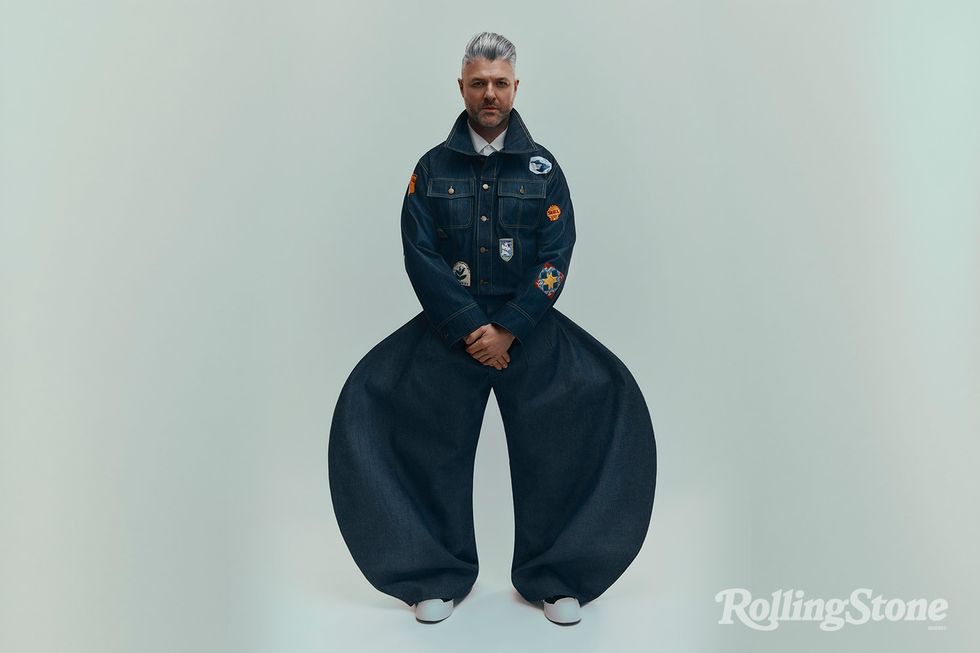 Blouson (denim and hand embroidered patches), WJ Crosson / Shit (polyester), Homme plissé Issey Miyake, Holt Renfrew/Pants from personal collection/ Shoes(canvas), Marni
Blouson (denim and hand embroidered patches), WJ Crosson / Shit (polyester), Homme plissé Issey Miyake, Holt Renfrew/Pants from personal collection/ Shoes(canvas), Marni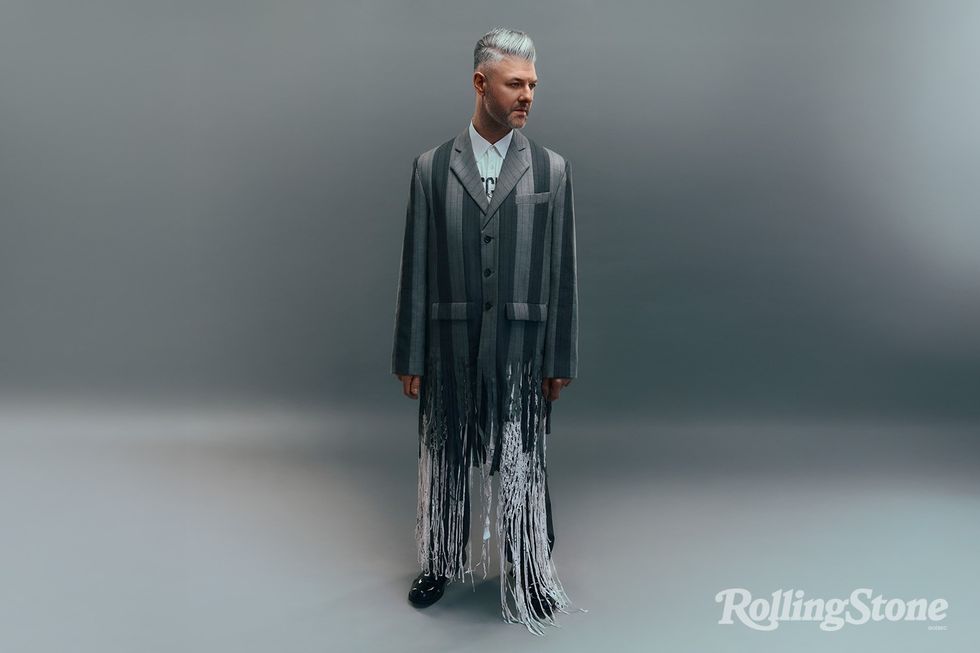 Jacket and pants (virgin wool), shirt (acrylic coated cotton), Moschino / Shoes from Pierre Lapointe's personal collection
Jacket and pants (virgin wool), shirt (acrylic coated cotton), Moschino / Shoes from Pierre Lapointe's personal collection
